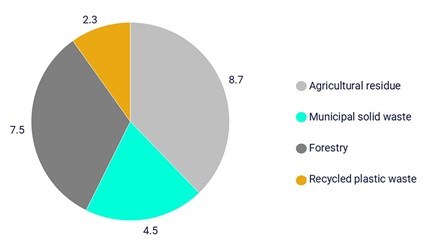Get in touch
-
Mark Thomtonmark.thomton@woodmac.com
+1 630 881 6885 -
Hla Myat Monhla.myatmon@woodmac.com
+65 8533 8860 -
Chris Bobachris.boba@woodmac.com
+44 7408 841129 -
Angélica Juárezangelica.juarez@woodmac.com
+5256 4171 1980 -
BIG PartnershipWoodMac@BigPartnership.co.uk
UK-based PR agency
Waste-Based Biofuels Could Be the Key to Unlocking the Energy Transition
New Biofuel Source Could Provide Up to 20% of Liquid Fuel Needs by 2050
1 minute read
Waste-based biofuels could be a key driver of the energy transition transforming today’s limited supply of low carbon transportation fuels and creating a local, circular economy, according to a new report by Wood Mackenzie, a Verisk business (Nasdaq:VRSK).
As the world transitions to new, sustainable energy sources, the somewhat neglected biofuel sector may have a crucial part to play. Currently, biofuels only account for 3% of today’s 100 million barrels per day (b/d) liquid fuel demand.
However, developing new technologies that drive biofuel production from municipal waste, agricultural residue and recycling plastics wastes could be a game changer for the energy transition. According to Wood Mackenzie, this could supply an additional 20 million barrels per day (b/d) of liquid biofuel by 2050, so satisfying a quarter of all future liquid fuel demand (95 million b/d in 2050), equivalent to around three quarters of 2050 middle distillate demand.
Wood Mackenzie vice president Alan Gelder said: “Many governments have understandably pulled away from using food-based biofuels, which has hampered the industry’s growth. However, there still is plenty of opportunity for growth, especially when we look at waste-based alternatives. For some areas of the transport sector, such as air travel, there is little alternative to liquid fuel, making decarbonizing difficult. This source of biofuel could be tremendously beneficial, providing a cleaner fuel alternative that addresses both future power and environmental needs.”






